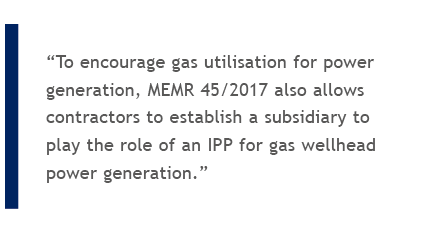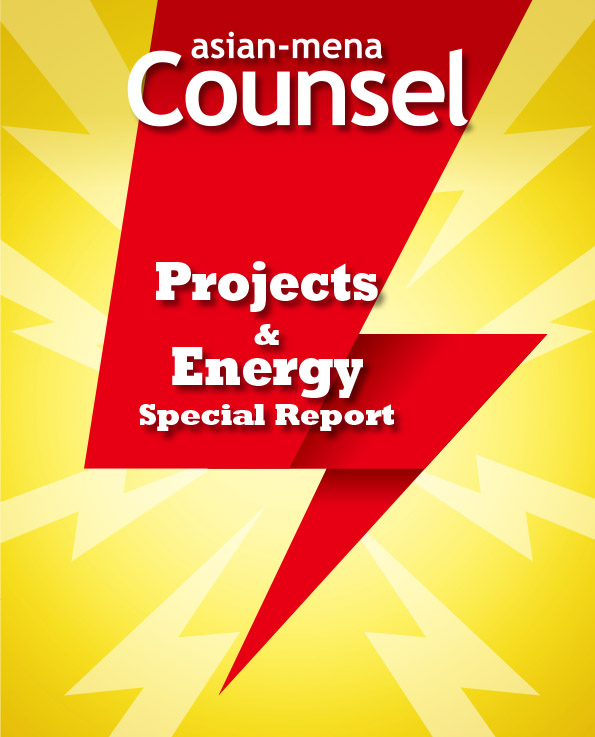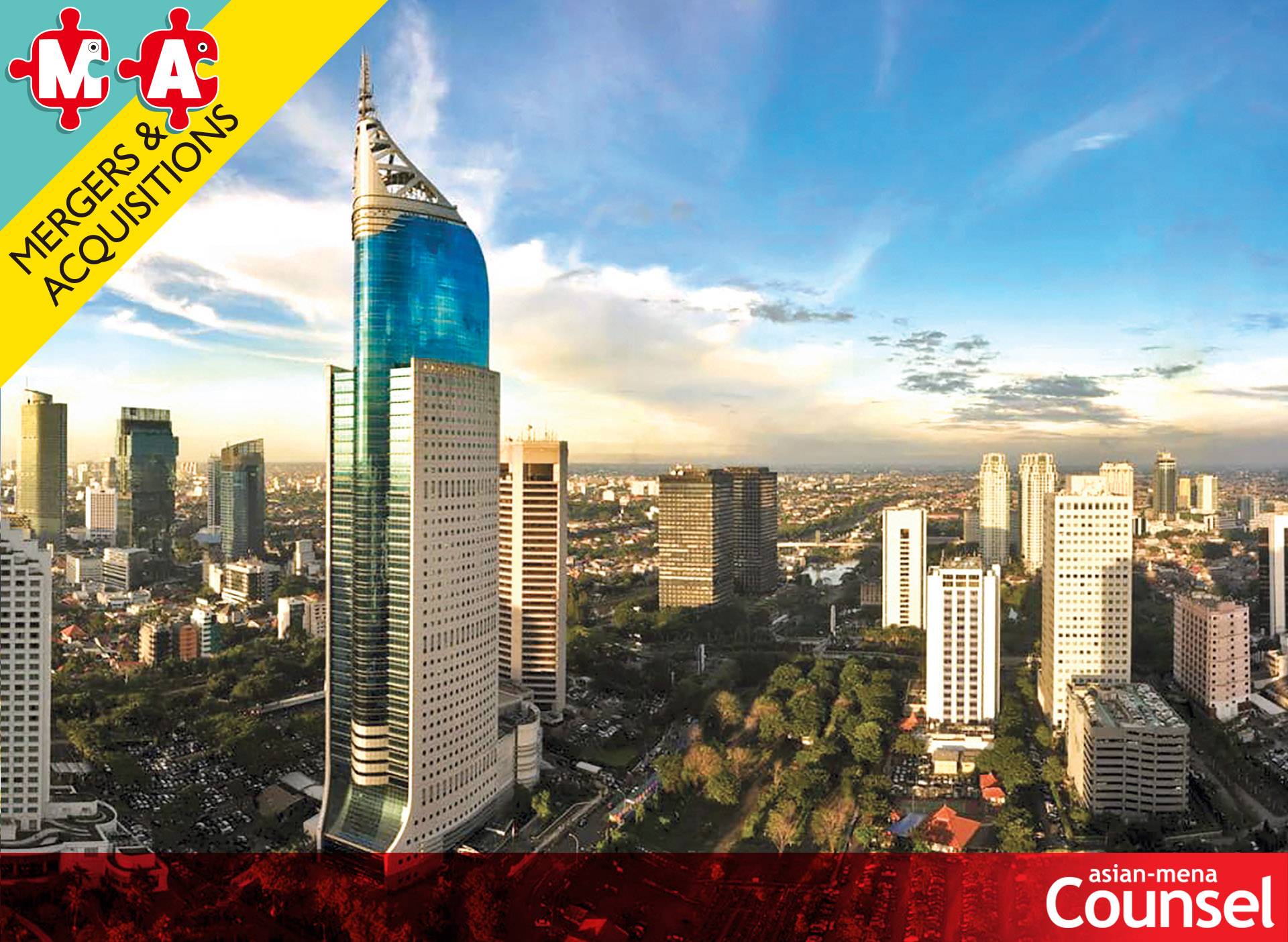 By Ferdinand Jullaga and Aka Fajaretta Nurafia,
By Ferdinand Jullaga and Aka Fajaretta Nurafia,
E: aka.fajaretta@mkklaw.net
E: ferdinand.jullaga@mkklaw.net
![]() The Indonesian government is making a regulatory push to meet its ambitious power targets.
The Indonesian government is making a regulatory push to meet its ambitious power targets.
Recent years have been challenging for the power sector in Indonesia. Despite the government’s ambitious target to install 35,000MW of new capacity by 2019, the development of the electricity sector has not gone at the expected pace. Some power projects awarded to investors have successfully achieved financial close, notably the 2×1,000MW Central Java coal-fired power project and the Muara Laboh geothermal power project, but progress on other projects in general has been quite slow.
One of the reasons for the slowdown in power project development might be the introduction of several regulations by the government that were not warmly welcomed by investors. The government might have sensed the cold reception and responded by changing the regulations to try and turn things around. The government knew that it needed to find a way to encourage investors to meet its 35,000MW target, and regulatory change is one of the significant breakthroughs expected by investors, even if it means making significant changes to the recently promulgated regulations.
There have been, in fact, several regulations issued by the government to address the widespread concerns of investors. Notably, Minister of Energy and Mineral Regulation No. 42 of 2017 on Supervision of Business Activities in Mineral and Energy Sectors (MEMR 42/2017) that was issued on July 17, 2017 was replaced by Minister of Energy and Mineral Regulation No. 48 of 2017 on Supervision of Business Activities in the Mineral and Energy Sectors (MEMR 48/2017) on August 3, 2017. Only two weeks after the former had been promulgated was it replaced by the latter. The reason was that not long after the issuance of MEMR 42/2017, criticism from investors made its way right up to the president’s office. A week later, the president gave a speech to make the point that cabinet ministers should refrain from issuing regulations that hampered the pace of investment. The minister apparently took heed of the president’s remark and a new regulation was issued just a week later.
MEMR 42/2017 requires electricity supplier companies, geothermal energy companies and mining and oil & gas companies to obtain approval from the ministry before a change in ownership can be carried out. The same requirements also apply to changes in directors and commissioners. These requirements were heavily criticised by investors, as they create an unnecessary administrative burden, particularly since these actions are typically already regulated in the concession contract with the state-owned electricity company, ie in the power purchase agreement (PPA) with Perusahaan Listrik Negara (PLN). MEMR 48/2017 provides more lenient requirements by only requiring that a notification be made. The notification is to be made after the fact, which means that investors can go on with an intended transaction or corporate action (or with changing BOD and BOC members) without having to worry about securing government approval.
Another regulatory change introduced by the government was the issuance of MEMR Regulation No. 45 of 2017 on Gas Utilisation for Power Projects (MEMR 45/2017) that replaced MEMR Regulation No. 11 of 2017 (MEMR 11/2017). MEMR 45/2017 changes the gas pricing system for electricity as well as stipulating the possibility for upstream oil and gas business actors (contractors) to invest in gas wellhead power generation.
With respect to gas pricing, MEMR 45/2017 provides that PLN or Independent Power Producer Companies (IPP) may purchase gas through a pipeline at the plant gate, with the highest price being in the amount of 14.5 percent ICP. While in the previous MEMR 11/2017, the highest price which could be paid was only in the amount of 11.5 percent ICP in the event the power plant was not located at the gas wellhead. As is the case with MEMR 11/2017, MEMR 45/2017 also allows PLN and/or IPP PLN and/or IPP to purchase LNG (liquefied natural gas) if access and LNG infrastructure facilities are provided if they fail to obtain a gas price equal to or less than the higher price.
To encourage gas utilisation for power generation, MEMR 45/2017 also allows contractors to establish a subsidiary to play the role of an IPP for gas wellhead power generation. Further, such an IPP can be directly appointed by PLN if it meets the requirements for direct appointment, ie if the gas price is not higher than 8 percent; if gas supply and allocation are sufficient during the period of the sale and purchase gas agreement; and if power plant efficiency with specific fuel consumption (SFC) is equivalent to that of high speed diesel in the amount of 0.25 litres/ kWh.
In addition to the issuance of MEMR 48/2017 and MEMR 45/2017 noted above, there have been two other regulations issued by the government to boost electricity infrastructure development as elaborated upon below.

Bankability of power projects
The Minister of Energy and Mineral Resources recently issued Regulation No. 49 of 2017 (MEMR 49/2017) which amends Minister of Energy and Mineral Resources Regulation No. 10 of 2017 on Main Provisions for Power Purchase Agreements (MEMR 10/2017). MEMR 10/2017 was widely criticised by investors, as it regulates the substance of a power purchase agreement (PPA) including the aspects of risk allocation, which was usually determined by mutual consent of the parties in a PPA (before the issuance of MEMR 10/2017). MEMR 10/2017 limits the flexibility of PLN in the negotiation of a PPA to accommodate the concerns of lenders of a project which impacted upon the bankability of a project.
One controversial issue under MEMR 10/2017 is the stipulation on the risk of government force majeure that was assigned to both PLN and the project company. It provides that both PLN and the project company must be relieved from any obligations should the project be terminated due to a government force majeure event. In practice, the PPA typically provides a certain amount of compensation to the project company, which should be sufficient to cover the remaining debt if a project is terminated due to a force majeure event. This is a critical factor for the bankability of a project. A bank would not view a project to be bankable if the project company did not have any recourse in the event of a change in government policy that could lead to termination of a project.
MEMR 49/2017 settles this issue by removing the provisions under MEMR 10/2017 which refer to government force majeure events. In this regard, a PPA is allowed to provide that PLN has the responsibility to pay compensation to a project company (and buy out the project) if a project is terminated due to government force majeure (change in government policy). However, the scope of government force majeure is still not clear under the ministerial regulation, as it still retains certain provisions which refer to a change in regulations. We may need to wait to see how PLN will implement the change introduced by MEMR 49/2017.
MEMR 49/2017 was surely welcomed by investors, as it removes the issue of government force majeure risk which previously called into question the bankability of a project. Unfortunately, several issues still remain under MEMR 10/2017 that were not addressed by MEMR 49/2017 including the risk of ‘Act of God’ force majeure events which could affect PLN’s ability to take on the electricity generated (deemed dispatch payment by PLN).
 Electricity price for renewable energy sources
Electricity price for renewable energy sources
Another development in MEMR policies which attracted the attention of electricity business players was the issuance of MEMR Regulation No. 50 of 2017 (MEMR Reg 50/2017), which replaced MEMR Regulation No. 12 of 2017 (MEMR 12/2017), concerning Utilisation of Renewable Energy for Electricity Power Generation only about seven months following the issuance of the latter regulation. The issuance of MEMR 50/2017 is expected to improve the business climate in the renewable energy sector. A highlight of this new policy is the opportunity for renewable energy players to freely negotiate the electricity sale price with PLN in the event the local BPP is equal or less than the national BPP amount.
BPP (Biaya Pokok Penyediaan) is the principal cost incurred by PLN to supply electricity in certain locations in Indonesia. MEMR will issue a decree annually to determine local BPP in all provinces and in certain cities in Indonesia and to determine the average national BPP. This year, MEMR issued MEMR Decree No. 1404 K/20/MEM/2017 which gives a breakdown of local BPP and sets the national BPP in the amount of IDR 983/ kWh for 2017.
Unlike the previous MEMR 12/2017 which sets out an 85 percent price cap for power generated from solar, wind, hydro power, biomass, and biogas power generation in the event the respective local BPP is less than or equal to the national BPP, MEMR 50/2017 now allows business players in solar, wind, hydro power, biomass, biogas, and additionally marine power generation, to determine the electricity purchase price based on negotiations with PLN.
MEMR 50/2017 also continues to maintain the exception of the 85 percent price cap for waste and geothermal power generation, by allowing these power generation companies to negotiate pricing with PLN. Furthermore, MEMR 50/2017 now promotes hydropower generation by allowing investors to negotiate pricing with PLN in the event local BPP is less than or equal to national BPP.
Another positive development in the new regulation pertains to hydropower generation companies. In the event the respective local BPP is higher than the national BPP, MEMR 50/2017 now provides a 100 percent price cap (previously it was 85 percent) of the local BPP. While investors in hydropower may be content with the said flexibility in determining the power price, the same cannot be said for other renewable energy sources which are still subject to the cap in the event local BPP is higher than national BPP.
Investors should warmly welcome the introduction of the regulations mentioned above, as they demonstrate that the government is responsive and willing to address their concerns. It will be interesting to see the implementation of such regulations, particularly since they do not completely address investor concerns. For its part, the government hopes there will be significant progress in the development of electricity infrastructure in the near future and that it can still meet its ambitious targets to increase capacity nationwide.

E: ferdinand.jullaga@mkklaw.net














 Mochtar Karuwin Komar (MKK)
Mochtar Karuwin Komar (MKK) Emir Kusumaatmadja
Emir Kusumaatmadja Mulyana
Mulyana







